Learn More
GOOD TO KNOW
Why have a website?
- The internet is the modern day phone book and encyclopedia all wrapped into one. Potential customers now look to the web for information.
- A website adds credibility & legitimacy to your business. It shows you are serious about your business.
- Websites expose your business to a wider audience in a way that cannot be done with any other advertising methods.
- Marketing. Consumers use the internet is to learn about products, services, staff and company background information.
- Websites work for you 24/7. Your website is working for you, even when you are not. Your customers have the opportunity to garner information, place orders or make contact any time, day or night.
- Your competitors have a website which means you may be losing business to them.
Why use a professional web designer?
- Technical expertise & ongoing education - a requirement as the internet and technology are rapidly changing.
- Time - free up your time to focus on what you love in your business and meet your customer’s needs.
- Search Engine Optimization (SEO) - implementation of Google and Bing recommended practices is crucial.
- Cross browser and device compatibility - not all browsers & devices function the same! Browsers Firefox, Internet Explorer, Safari & Google Chrome function differently as well as devices Droid, iPhone & etc.
- User experience - website visitors need easy navigation and good site structure. Don't alienate clients with a poor experience.
- Great 1st impressions count - websites are often the first point of contact for potential clients. Don't look cheap.
Costly mistakes small businesses may make when maintaining websites themselves
- Do not update design and source code regularly - THINK DOG YEARS
when it comes to age of your websites design and backend code.
- Not updating content regularly - Your website is an ongoing project. Updates and changes need to be made, other wise customers & Google may think you have abandoned your business.
- Poor SEO - Search Engine Optimization, this is your discoverability on the internet.
- Lack of social media integration
- No Call to Action
- Poor design and user experience - causes the website visitor to leave the site.
- No analytics and measurables
- Site not mobile optimized
- Technology advances - most business owners are not able to keep up with rapidly and constantly changing technology and industry standards.
- Wasting Valuable Time - business owners who maintain their own websites run the risk of wasting time that could be better spent to cultivate new business.
How much time do you have ? - the scoop about online website factories
Sites offering "build your own website" make developing your own site seem so-easy
and they are priced "just right" or are free. Online companies have put the power of web development into the hands of everyone, with the only significant investment being your time.
So how difficult can it really be?
First
- you'll find yourself logging into software where you will find a variety of options for your website and I’m pretty sure you'll also find terminology you may not understand. In order to understand how the software works you might spend countless hours either on the phone with support (if they offer phone support) or searching their online support documentation for “how to” articles.
Second
- you will be forced to choose a template and work within its parameters. Minor template customization is usually an option, but any significant design changes require an individual with technical expertise.
Third
- during your search of support documentation you discover articles on the importance of SEO, back linking, title tags, meta data, alternate text, and analytics on a well developed website. You may then spend countless more hours you really didn’t have in the first place to educate yourself on the additional processes necessary to build an effective website.
Fourth
- more often than not, these types of websites are not optimized for the search engines. Your website could end up being similar to having a storefront in a back alley with no signage.
As a determined small business owner you'll muddle through all of the new information and get to the tasks of mapping out navigation, selecting color, selecting font, designing graphics needed such as logos, optimizing graphics and photos for the web, and then writing the text.
But then, what about making updates and keeping up with maintenance due to the rapidly changing technology industry?
It’s only time and it’s all so easy…
Online build your own websites are a very economical way to generate a website, but require you to spend a lot of time to do the work. Time is money and wouldn't your time be better spent on focusing on what you love in your business and meeting your customer's needs?
Save yourself the time, hassle and money, hire a professional website designer.
Things to consider before you decide on open source software to build your website
Open source software is software whose source code is available for modification or enhancement by anyone. (e.g. Wordpress, Drupal, Joomla)
Overview of most open source website platforms:
- The software/application - what you use to build your website
- The theme/design - how it looks
- Plugins/widgets - extras functions like mailing lists, contact forms, shopping carts
- using the free version requires you to install the software/application on your server through your preferred self hosting provider (GoDaddy, JustHost, etc.) and "you" are your "tech support"
- a community of third party developers build themes and plugins for the software/platform
- developers are not required to meet standards or have any certifications, nor is there an organizational body assessing the quality, function and or compatibility of themes and plugins developed
- developers are not vetted by any governing body and a single plugin can allow unwanted access/hacking to your dashboard and to sensitive information that may be stored in your database
- developers may not test the theme or plugin they have developed to see if it is compatible with every other theme or plugin available to install. There are thousands of themes and plugins available and third party developers are only testing on what they feel is personally relevant, and in some cases there may not be any testing at all. Sometimes two different plugins may work perfectly well installed on their own, but it is possible when both are installed on the same site conflicts can cause issues and break your site.
- regularly released security updates which need to be installed and may require technical abilities or you run the risk of breaking or crashing your site. This is especially true in the case of custom themes and plugins as the developers of the themes and plugins may not update their work with each security patch or bug fix.
- open source and free mean the most common support option you have available is a Google search of various support forums. If no one else has a similar issue to yours, you can post a ticket on a forum and cross your fingers for someone that can and will help you to solve your problem. These fixes can be technically challenging for an experienced developer and can be almost impossible for the novice user.
- bloated code which slows down site loading, creates a poor user experience and affects your search engine optimization. Software platforms can use a lot of your servers resources and the more plugins you install the slower it becomes.
- Security - hackers love open source, and hacking has become automated...
- Updates - you perform the updates
- Compatibility - theme and plugin glitches with third party developers
- Support - resources are costly, time consuming or lacking
- Complexity - of the software and the process
- Speed - tends to be slow loading
Learn more about working together:
Thank you for contacting us.
We will get back to you as soon as possible
We will get back to you as soon as possible
Oops, there was an error sending your message.
Please try again later
Please try again later
Founded in 2009, DreamWeaver Studio is a web design company based in the Greater Cincinnati, Ohio area. I pride myself on being a champion for small business owners and non-profit organizations.
I provide services through out the United States & Canada.
© 2024




